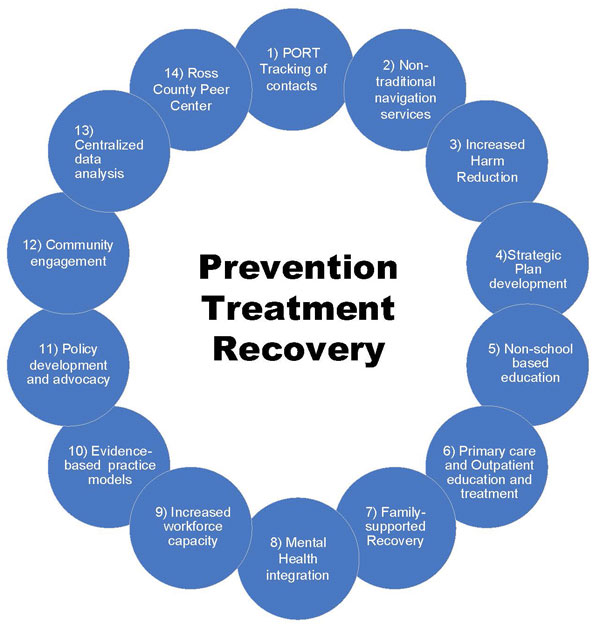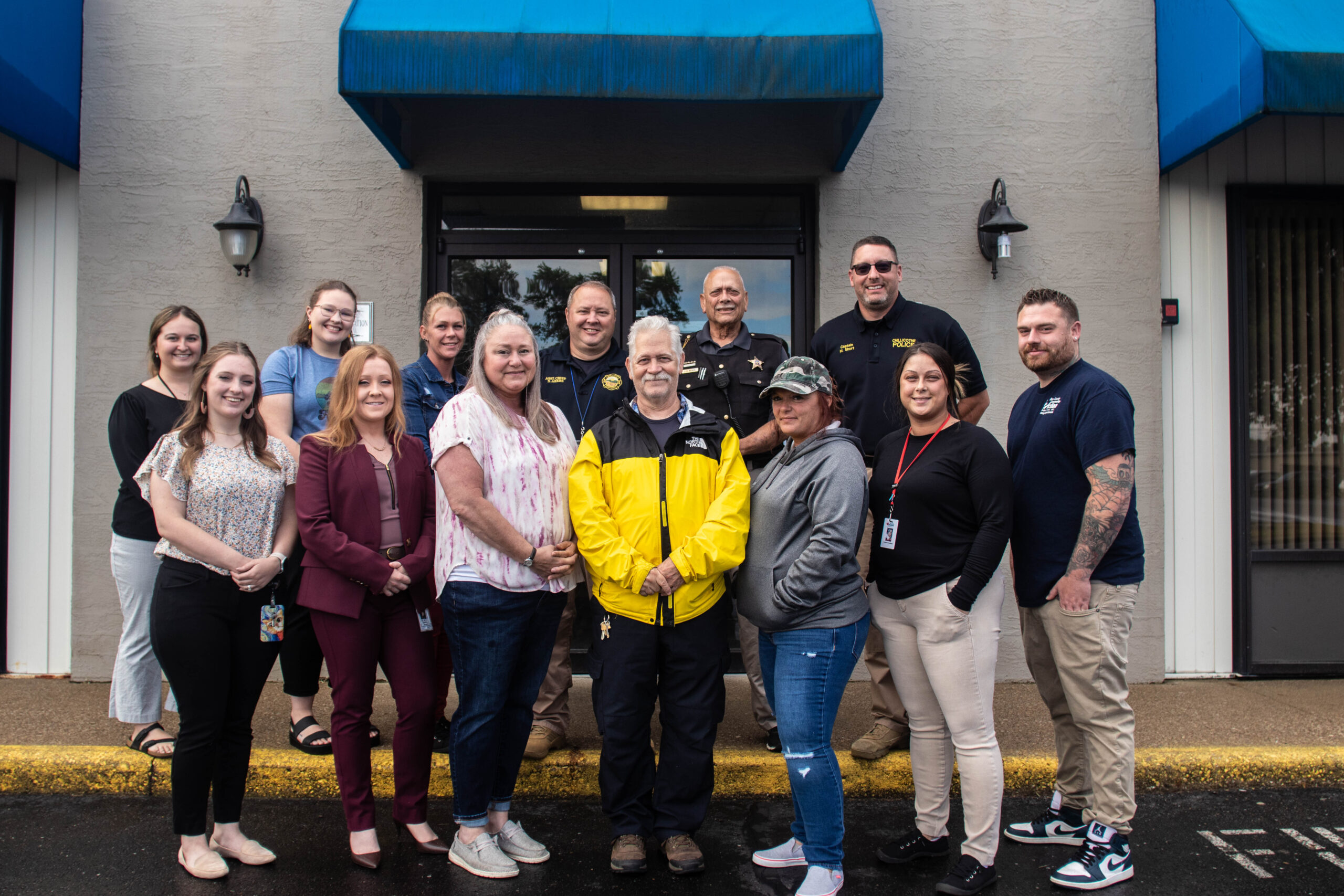HPP Strategic Plan
What does the Hope Partnership Project Do?
“Create Collaboration for Better Outcomes”
The HPP pulls people together to do more. We focus on what has been proven to work with individuals in active addiction or in recovery. We also work upstream, to prevent substance use disorder (SUD) before it begins.
The “we” in the HPP brings a coalition of over 60 agencies and organizations in Ross County together – often several at a time, sometimes in small groups, and occasionally as a collaboration of the whole. While each of our members work hard to prevent, treat, and assist in recovery, the value of pulling together to address the current crisis produces synergy.
Our solutions and projects demand boundary spanning leadership and cooperation.

Current HPP Initiatives include:
- Ross County PORT (Post Overdose Response Team)
- Quarterly Fatality Reviews for Overdose Deaths
- Ross County Recovery and Outreach Center
Current HPP Grants include:
- Health Resources and Services Administration (HRSA) Implementation Grant (2019 – 2022) – Administration/leadership through Adena Health System
- Bureau of Justice Assistance (BJA) Comprehensive Opioid Abuse Site-Based Grant Program (COAP) Data Driven Response Grant (2019 – 2021) – Administration/leadership through Ross County Health District
- Office of Criminal Justice Services (OCJS) Edward Byrne Memorial Justice Assistance Grant (JAG) (2015 – 2020) – Administration/leadership through Ross County Common Pleas Court
HRSA Implementation – Ross County Opioid Response Plan (Ross-CORP):
The award of the HRSA federal monies will greatly help the Hope Partnership Project to determine direction and services through 2022. A core group of HPP members call the Ross-CORP (Adena Health System, Friel and Associates, Ohio University – Chillicothe, Paint Valley ADAMH Board, Ross County Community Action, Ross County Health District) work with the HPP Advisory Committee to target the whole of Ross County. Specifically, the Ross-CORP, led by Adena Health System, is accomplishing its goal to strengthen our rural community’s capacity to change the skyrocketing trend in years of potential life lost (YPLL) by targeting more integrated and more comprehensive SUD/OUD prevention, treatment and recovery support.

Post Overdose Response Team:
The Post Overdose Response Team (PORT) is one of the original services formed by the Hope Partnership Project in 2016. It is partnered by a group of HPP members to include the Ross County Sheriff’s Office, Chillicothe Police Department, Ross County Health District, rotating mental health/treatment facility counselors, and peer recovery supporters. The group meets weekly to share information and review the overdose calls: names of those involved in the report, ages, any prior run-ins with law enforcement, previous overdose history, whether they received NARCAN, hospital transport, and the addresses of the occurrence and victim’s home.
Then a small group from the review heads out into the county for visits. Sometimes the field team go to the address where the overdose occurred, sometimes they go directly to the victim’s home. No matter where they end up, members of the team help connect to services for addiction treatment and other recovery services with in-person discussion with the victim or family or a PORT bag containing educational materials.
BJA Community Opioid Action Plan (COAP) – Data Dashboard and Network:
To truly understand the impact of programs and services provided, there must be a way to measure what is going on in the substance use disorder world: for opioids as well as other drugs. These measurements are used to figure out how the epidemic is affecting the individuals using the substances, those around them, and what the best solutions are to address the complex issue. With the ability to measure our impact on this crisis, the fight becomes measured by smaller wins, the hope in victory continues.
The Partnerships to Support Data-driven Responses to Emerging Drug Threats was awarded to the Ross County Health District in September 2019, one of six nationwide awards under the BJA COAP. It will enable Ross County to build a data dashboard and network by 2021 that reaches out regionally, statewide, and nationally to demonstrate local public health, behavioral health, and public safety agency collection and analysis of near real-time data and develop rapid responses that use public health, behavioral health, and public safety strategies to reduce overdose deaths in our community and guide public safety and public health responses.

Ross County Recovery and Outreach Center:
The Ross County Recovery and Outreach Center (RCROC) is the latest launch of the Hope Partnership Project, and opened in August 2019. Services include drop-in outreach (e.g., food, laundry, showers, referral information and navigation), peer recovery support activities, partnered events (e.g., flu and Hepatitis A immunizations, assistance with identification and medical cards, housing and work referrals), support groups (e.g., Dual Recovery Anonymous, Grief Recovery and Support Program [GRASP], Medication Assisted Recovery Anonymous [MARA], Family Support Group).
The RCROC is administrated/led by Ohio Change Addiction Now (Ohio CAN) and aligned with the Ross County Ohio CAN Chapter. Located at 300 East Second St., the outreach center is open most weekday afternoons, early evenings for group support meetings, and other hours for special outreach events. Please visit the Hope Partnership Project Facebook page for more information about RCROC activities.


